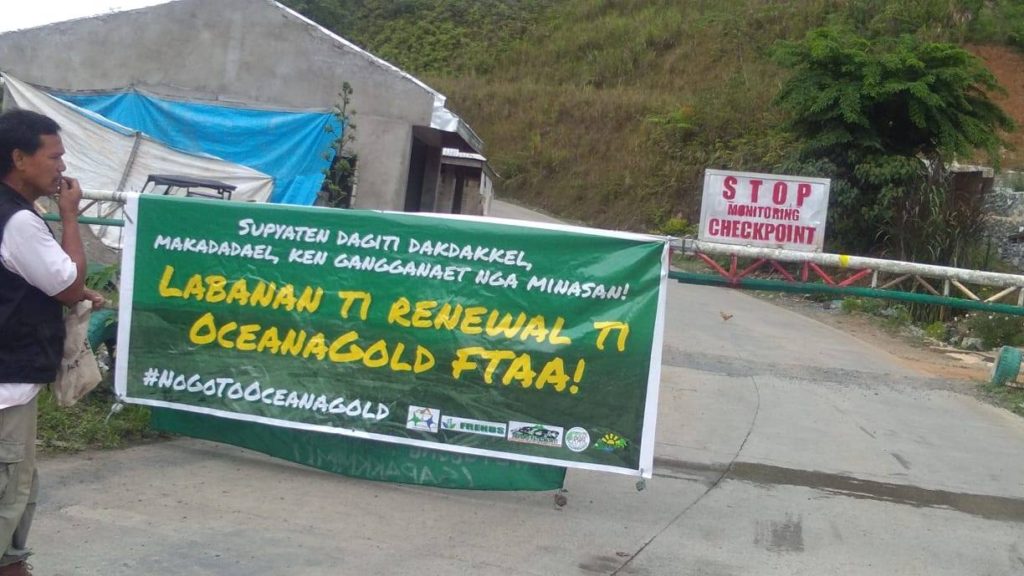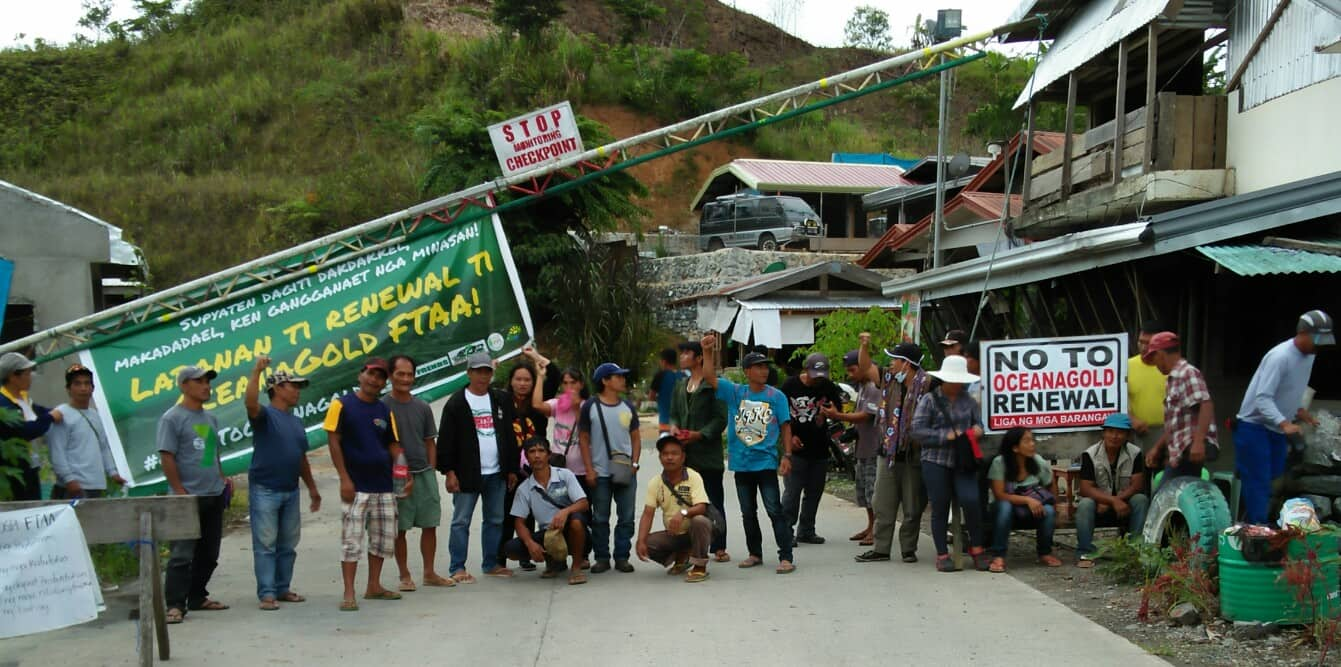When our nation’s patrimony is threatened by foreign interests, it is up to us – the people of the land – to defend it.
This has motivated the people of Kasibu, Nueva Vizcaya to rally against multinational mining company OceanaGold Philippines Inc. (OGPI), calling for the shut down of the highly-problematic Didipio Gold-Copper Mine in their locale.
Under the Philippine Constitution, Article XII, Sec. 2 states: “All lands of the public domain, waters, minerals, coal, petroleum, and other mineral oils, all forces of potential energy, fisheries, forests or timber, wildlife, flora and fauna, and other natural resources are owned by the State.”
While it provides space for exploration, development and utilization of these natural resources under co-production, joint venture, or production-sharing agreements with corporations, the Constitution still mandates that these activities be “under the full control and supervision of the State”. It explicitly requires that any corporation extracting these minerals with the State must be “at least sixty per centum of whose capital” is owned by Filipino citizens.
These Constitutional provisions essentially bars any foreign-owned corporation from establishing 100% control of activities that extract natural resources, this includes mining. Yet OGPI have enjoyed a Financial or Technical Assistance Agreement (FTAA) with the Philippine Government since merging with Climax-Arimco Mining in 2006, both corporations are Australian-owned.
An FTAA, according to the Mines and Geosciences Bureau (MGB), entered into between a Contractor
and the Government for the large-scale exploration, development and utilization of gold, copper, nickel, chromite, lead, zinc and other minerals except for cement raw materials, marble, granite, sand and gravel and construction aggregates. Such agreement has a fixed-term of 25 years, subject to compliance with supposedly strict labour and environmental protection laws.

It was also revealed by PhilSTAR that both the MGB and the Department of Environment and Natural Resources (DENR) are endorsing OGPI’s FTAA renewal application with the Office of the President, whose agency the final approval for such permit falls under. But why give aid to a corporation that has been cited for multiple violations to the environmental, human rights, and labour laws?
From the start of its operations, OGPI have violated Philippine law by failing to obtain consent from the local community, as mandated by Section 16 of the Philippine Mining Act of 1995 for mining operations which occur within indigenous ancestral land. According to a communique by the United Nations Special Rapporteur on human rights, local indigenous communities from the Bugkalot, Ifugao, Ibaloi, and Kankaney tribes have been relentlessly protesting Didipio mine’s operations.
UN SR Communication Re Oceanagold 02132019 (1) by Louie on Scribd
The same communique highlighted the forceful eviction of 180 families in June 2008, whose homes were destroyed by OGPI’s security staff reinforced by heavily armed policemen. A year later, an attempt to again evict many local residents was repelled by the people but resulted in a violent dispersal by the police who used truncheons and tear gas on the protesters.
The Didipio mine and its surrounding communities have been the subject of many inquiries by the Commission on Human Rights (CHR), including in 2008 when the agency’s then-chief Leila de Lima cited the mining company for violating the rights of indigenous people to their lands.
In 2011, the CHR launched a full-scale review of OGPI’s alleged human rights violations in Nueva Vizcaya and found the company guilty of violating the people’s rights. Specifically, the human-rights body scored the mining corporation for infringing the Right to Residence for forcefully evicting people from their homes and the Right to Security of Person for hiring security personnel that regularly intimidate and harass local residents.
The Australian-based mining firm has also been accused of the degradation of the natural environment surrounding it, directly violating its FTAA and also national law. A report published by the Institute of Policy Studies (IPS) in tandem with Mining Watch Canada (MWC) revealed that the waterways surrounding Didipio mine have been contaminated and is severely threatening the Cagayan River downstream.
(READ: OceanaGold Report by IPS & MWC)
The same report also cited the work of independent researchers who have found that OGPI’s operations have depleted the province’s groundwater, which poses negative impacts on the local agricultural sector, human health, and even to Nueva Vizcaya’s economic viability.
The UN SR communique have also found that the nearby Didipio river has traces of contamination from heavy metals, and this is the local community’s main source of drinking water. Their research found that the concentration of copper in the river exceeds the Severe-Effect Level and the maximum level both for irrigation use and the survival of aquatic organisms, which are 200μg L-1 and 50μg L-1, respectively.
Being both a human rights and environmental scourge, it is obvious why the province of Nueva Vizcaya are opposed to the renewal of OGPI’s FTAA – and yet their application is being pushed by certain bureaucrats. The mining firm claims to remit billions of pesos in revenue to the national government’s coffers each year, but the negative impact it poses to human lives, the environment and to indigenous communities.
Not only should OGPI’s FTAA be declined for renewal, it should cease operations immediately. Activist groups should also strongly push for more inquiries to comprehend the full-extent of the Australian firm’s injustices, and seek compensation for the residents that have been affected.
It was only last year that President Rodrigo Duterte made the iron-clad promise to shut-down mining in the country, citing the dangers to human life and to the environment which this activity poses. He now has the chance to make good on that promise by rejecting OGPI’s FTAA renewal, since the final decision lies with him.
Will the President stand by the people, or will corporate interests reign supreme once again?

